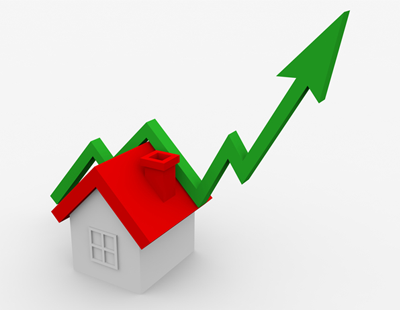
A new analysis of the housing market by a leading rental sector expert appears to show little potential for a crash.
Some industry figures and economic commentators have said a big fall in prices and demands, triggered by the cost of living crisis, would turn the housing market upside down.
But the agents behind DJ Alexander Ltd - the largest lettings agency in Scotland and part of Lomond Group - says that although house prices have been increasing rapidly since the start of the pandemic in March 2020, they are still lower than the increases experienced before the 2008 property crash.
Taking Scotland as an example, the agency says that in the 28 months since the start of the pandemic up to the latest figures for June 2022 average prices have increased by 27.6 per cent. In the 28-month period from February 2006 to the market peak in May 2008 the increase in average prices was 35.7 per cent.
In the run-up to the 2008 property price crash average increases across Scotland’s four main cities varied widely from 17.2 per cent in Glasgow to 61.1 per cent in Aberdeen. Average prices in Edinburgh rose 23.6 per cent and in Dundee 31.8 per cent over the same period.
Over the last 28 months there is again a wide spread of average increases but none as large as the 2008 figures.
Aberdeen prices have only risen by 4.2 per cent since March 2020 and still remain below the peak of 2008 while Glasgow has recorded the largest increase in average prices rising by 28.9 per cent. Edinburgh has risen by 19.0 per cent while Dundee has increased by 24.7 per cent over the same period.
David Alexander, the chief executive officer of DJ Alexander Scotland, comments: “There are a number of major differences between the housing market now and in 2008 when prices fell substantially. Our analysis of the figures indicates that house prices have not risen as substantially as they did in the run-up to 2008 so they are unlikely to experience as large a fall if the market slowed or went into reverse.
“Unemployment is at an historic low level so even with mortgage increases and higher living costs there is more room for people to survive a downturn in prices as long as they have a job.”
“Demand remains high, despite the financial pressures, due to a shortage of properties on the market. This has maintained and may continue to support the high prices being paid. But this will not go on forever, but it could be a factor in producing a much slower rate of price decline than might otherwise be expected.”
We're excited to announce that we're working on building a shiny new website for readers of Landlord Today! As part of this process, commenting on articles will be temporarily disabled. We look forward to sharing our new and improved Landlord Today website with you shortly!








.png)

(1).png)







.jpg)






%20(002).png)





